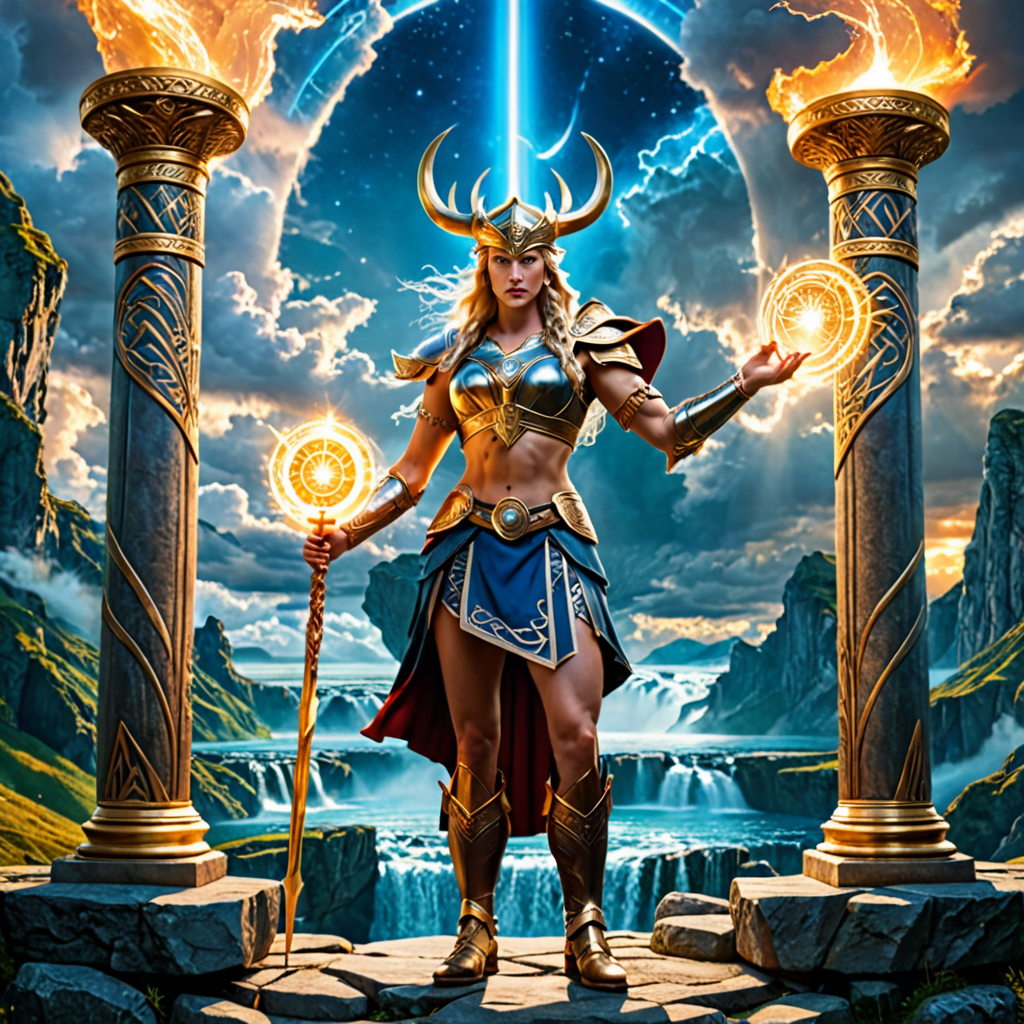The Role of Dreams and Prophecy in Norse Mythology
1. Introduction to Dreams and Prophecy in Norse Mythology
In Norse mythology, dreams and prophecies played significant roles in shaping the destiny of gods, giants, and humans alike. The belief in prophetic dreams was deeply rooted in the Norse culture, with seers and shamans interpreting these visions to unravel the threads of fate.
2. The Importance of Dreams in Norse Mythology
According to Norse belief, dreams were seen as portals to the realms beyond, allowing individuals to receive messages and warnings from the spiritual world. Warriors often sought guidance from their dreams before embarking on quests or battles, believing that the gods communicated with them through these ethereal visions.
Moreover, dreams were not merely random occurrences but were considered powerful tools of prophecy and insight, offering glimpses into possible futures and uncovering hidden truths.
3. The Role of Prophecy in Shaping Destiny
Prophecies in Norse mythology were often cryptic and filled with symbolism, challenging both gods and mortals to decipher their intended meanings. The Norns, the mystical weavers of fate, spun destinies and wove threads that determined the ultimate outcomes of individuals.
Seers such as the volva used trance-like states to access visions of the past, present, and future, providing invaluable insights into the unfolding events in the mythological cosmos. Prophecies were regarded as immutable forces that guided the actions of gods and heroes, influencing the course of epic battles and narratives.
4. Conclusion: The Mystic Tapestry of Dreams and Prophecy
In Norse mythology, dreams and prophecy intertwined to form a rich tapestry of mystical forces that shaped the lives of deities and mortals alike. These vibrant narratives exemplified the interconnectedness of the past, present, and future, emphasizing the intricate dance of fate and free will within the cosmic cycle.
Exploring the nuances of dreams and prophecy in Norse mythology not only provides insight into the cultural and spiritual beliefs of the ancient Norse people but also offers a compelling glimpse into the enigmatic nature of existence and the ever-unfolding saga of the mythic realms.
FAQs about the Role of Dreams and Prophecy in Norse Mythology
What role do dreams play in Norse mythology?
In Norse mythology, dreams were believed to be a way for the gods to communicate with mortals. They often served as omens or premonitions, foretelling events that would come to pass.
How significant are prophecies in Norse mythology?
Prophecies held immense importance in Norse mythology. They were seen as inevitable outcomes that could not be avoided, shaping the destiny of gods, giants, and humans alike.
Who were the major figures associated with interpreting dreams and prophecies in Norse mythology?
The Norns, three powerful female beings, were central to interpreting and weaving the threads of fate in Norse mythology. They determined the destinies of both gods and humans, shaping the course of events through their prophecies and actions.





